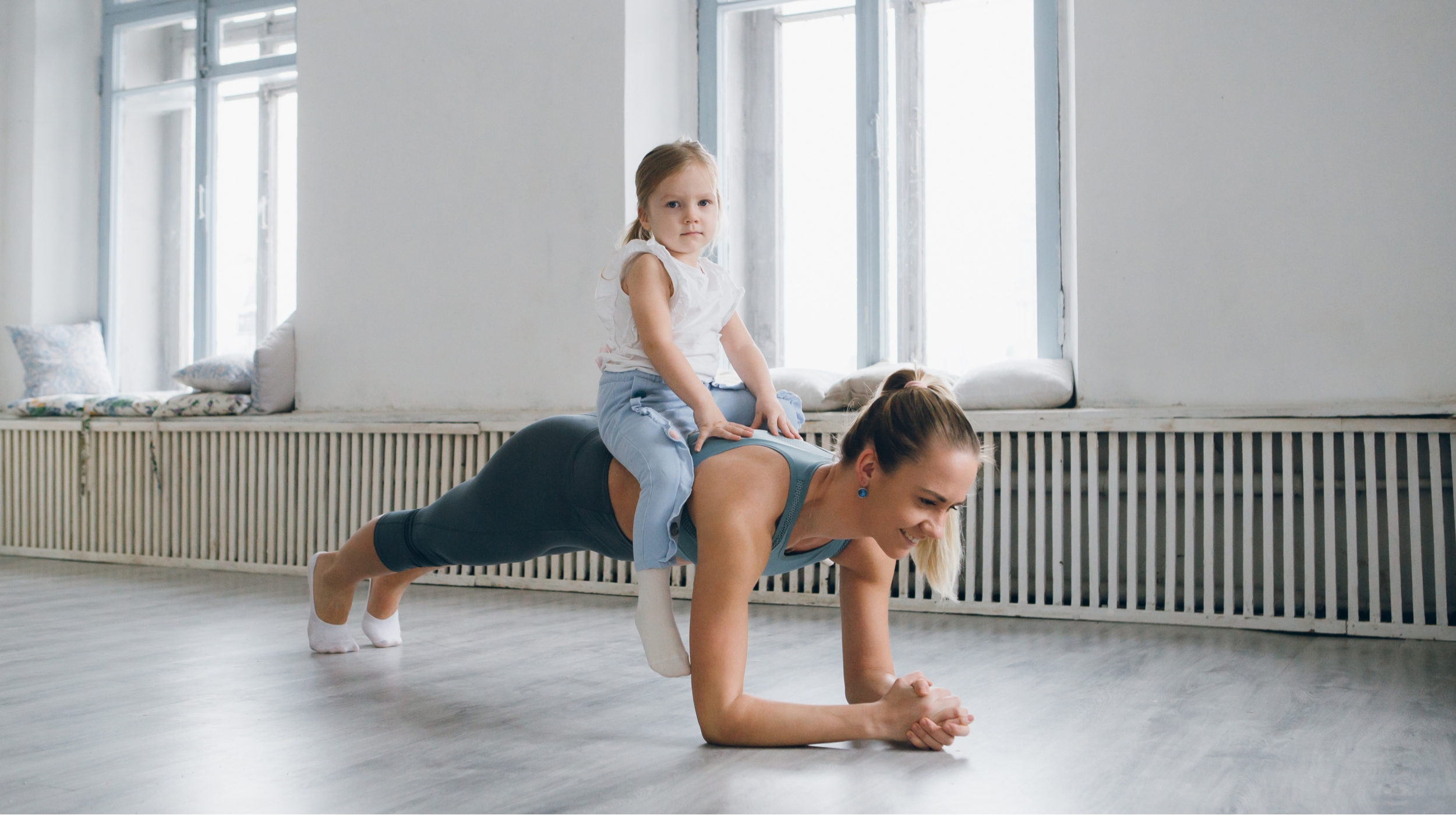What is the Most Effective Way to Lose Body Fat After Having a Baby?
Feb 4, 2021 mindpumpAfter having a baby, many women struggle to lose the extra weight from pregnancy and actually achieve an overall healthy weight. Let’s face it, after going through such a tremendous amount of change, you might be anxious to get back to your pre-baby body, but it’s not easy. While navigating this postpartum stage, you’re probably looking for the most effective and quickest way to lose body fat. In this blog, I will go through the best way for new moms to achieve effective fat loss after having a baby.
Understanding “Baby Weight”
First, there are normal amounts of weight gain with pregnancy to consider, such as the weight of the baby, amniotic fluid, enlarged uterus, placenta, increased body fluids, and body fat (1). The increased body fat is stored energy for delivery as well as for breastfeeding after giving birth. But it’s very common to gain more weight during pregnancy than the healthy range of 25-35 lbs. Holding on to extra “baby weight” after your postpartum period can lead to other health issues like increased risk of diabetes and heart disease down the road.
Studies show that excess weight gained during pregnancy and retained after having your baby (6 months after delivery), is associated with long term weight retention and increased risk for obesity (2). It’s also important to note that weight retention at the end of the postpartum year predicts weight that can stick around up to 15 years later. Yikes! So once you are cleared for exercise, it’s essential to choose the right kind of training that will keep you strong, burn body fat, and increase your metabolism.
Cardio is Not Effective Long Term
Ok, it’s been 3-6 months since you had your baby, and now you are cleared for exercise. Your world has forever changed with a new baby to take care of and lack of sleep, to say the least. You might be feeling short of energy and dreading the many workouts ahead to lose that body fat. This is the time to be gentle with yourself, and accept that this postpartum phase is a process as well. Knowing this, cardio (aerobic exercise) is not the best way to get you back to your pre-baby body weight and burn that body fat.
It’s very common that once women are cleared for exercise, the first thing they do is jump on the treadmill and get back to their cardio routine with the intention of burning body fat. Cardio is great for our hearts, but it is not a great way to effectively lose body fat and keep it off. It’s important to note that although cardio might burn more calories in a given amount of time, resistance training can increase the excess post-exercise oxygen consumption (EPOC) following a period of heavy resistance exercise, elevating your metabolism (3). This is where resistance training is actually very effective towards losing body fat and maintaining a healthy weight over time, combined with a balanced diet.
Cardio won’t provide the insurance that building muscle will. Having more muscle mass maintains a higher metabolism for your body. If you have a higher metabolism, you will have an easier time losing body fat (4). Your body will burn more calories at rest if you have more muscle mass, making the process easier and creating more shape to your post-baby body.
The other issue with only doing cardio is that your body will become more efficient with cardio the more you do it as it adapts. Over time to keep the weight dropping, it will require you to do more and more cardio to keep losing weight without specifically burning body fat. This plan is not realistic, and it doesn’t help you develop a fit physique at all. Plus, who wants to do all that time-consuming cardio when you lack sleep?
How to Effectively Reduce Body Fat
Once you are cleared for exercise, you can start a resistance training program focusing on compound movements. Functionally speaking, you will need muscle to adapt to the physical demands of picking up your new baby and the postural changes that occur. Exercises like squats, lunges, rows, and overhead pressing movements all play a role in your everyday life as a new mom.
Keeping a consistent resistance training routine will also help you increase your energy levels, help prevent future diseases and illnesses, and improve your overall balance and functional movement.
Resistance exercise is known to be highly beneficial for the preservation of bone and muscle mass loss (5). Because women are typically less active during pregnancy and the postpartum period of lactation, there is a loss in bone mineral density that may occur up to 10% (6). It’s crucial to maintain a resistance training program as you age to help offset natural age-related declines in bone mass. Strength training puts stress on bones by tugging and pushing on the bone which can help stimulate new bone growth creating denser bones.
Now you are ready to add strength training to your postpartum journey and begin to feel stronger and more capable as a new mom! The many benefits of strength training triumph over the traditional cardio for fat loss and give you a solid foundation for your future health.
1) https://www.ncbi.nlm.nih.gov/books/NBK32813/
2) https://pubmed.ncbi.nlm.nih.gov/15292482/
3) https://link.springer.com/article/10.1007/s00421-001-0568-y?LI=true
4) https://pubmed.ncbi.nlm.nih.gov/22777332/







